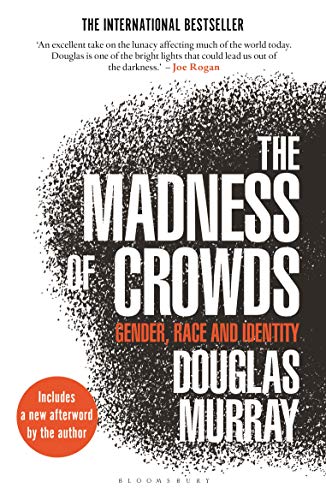A Brief Book Summary from Books At a Glance
By Benjamin J. Montoya
About the Author
Douglas Murray is an author and journalist based in Britain. His latest book, The Strange Death of Europe: Immigration, Identity, Islam, was published by Bloomsbury Continuum in May 2017. It spent almost 20 weeks on the Sunday Times bestseller list and was a No. 1 bestseller in non-fiction. It has subsequently been published in more than 20 languages worldwide and has been read and cited by politicians around the world. The Evening Standard described it as, “By far the most compelling political book of the year.”
Introduction
We live in a time of madness that has probably never been seen before because of the sheer rate of the speed with which information flows. We live in a day wherein a certain understanding of “social justice” is attempting to embed itself throughout our society at nearly every level. Coupled with the speed with which information flows, that can be a dangerous thing. Why? This understanding of social justice seeks to divide people based on its understanding of race, intersectionality, etc. Consider this important book to learn more!
Table of Contents
Chapter 1 Gay
Interlude: The Marxist Foundations
Chapter 2 Women
Interlude: The Impact of Tech
Chapter 3 Race
Interlude: On Forgiveness
Chapter 4 Trans
Summary
Chapter 1: Gay
The madness that we see in the world around is due to the madness of crowds. Crowds are not typically rational entities. But, they require someone or something to turn them from rational to irrational, though that can switch very quickly. One issue that has seen a drastic change from the 1990s to recent years is the crowd’s larger understanding and acceptance of homosexuality.
In the 1990s, Hillary Clinton supported Bill Clinton’s defense of marriage act. Now, of course, Hillary has come full circle on this issue as so many have. Why is that? What has happened in our culture is that what used to be considered a disorder by medical and psychological professionals has now become something that is supposed to be accepted, advertised, and celebrated. For example, even though no one would likely ever seen a newspaper advertising the acceptance of heterosexuality in other countries, newspapers will do that sort of thing with homosexuality. The larger view of the crowd has now shifted in the other direction, from being a seesaw in favor of heterosexuality to that of homosexuality.
One of the prevailing arguments made is that people are “born this way.” See our summary of J. Alan Branch’s book Born This Way for more on this topic. People try to make a distinction between hardware and software. Their understanding of “hardware,” how people are born, has come to include homosexuality whereas people’s understanding of that sexual orientation is considered software that be changed, or updated to understand other people’s hardware better.
With all this discussion of homosexuality, one might be tempted to think that homosexuals want equal treatment in society. That is not what this is all about. They actually want some kind of gay bonus treatment because of their orientation. For example, Ellen DeGeneres has made a fortune from her publicizing her lesbianism and celebrates it on her show.
There are all kinds of problems with homosexuality, not the least of which is that it is an incredibly selfish thing. It would be hard to describe this without quoting what people like Daniel Mendelsohn have written about the topic,
From those indifferent couplings I do remember this: when men have sex with women, they fall into the woman. She is the thing that they desire, or sometimes fear, but in any event she is the end point, the place where they are going. She is the destination. It is gay men who, during sex, fall through their partners back into themselves, over and over again.
This is a very telling and disturbing insight from a homosexual. But where do these kinds of ideas originate? Consider the next chapter to learn more.
Interlude: The Marxist Foundations
A lot of the kinds of changes that are taking place in the culture around us and, subsequently, coming forth in the madness of crowds, stems from Marxist foundations. These foundations today differ from what they once looked like. Before, they were built on the idea of class/worker inequality, such that the working class would one day overthrow the ruling or more wealthy class. That vision/prophecy never realized, but that did not stop Marxists.
[To continue reading this summary, please see below....]The remainder of this article is premium content. Become a member to continue reading.
Already have an account? Sign In
